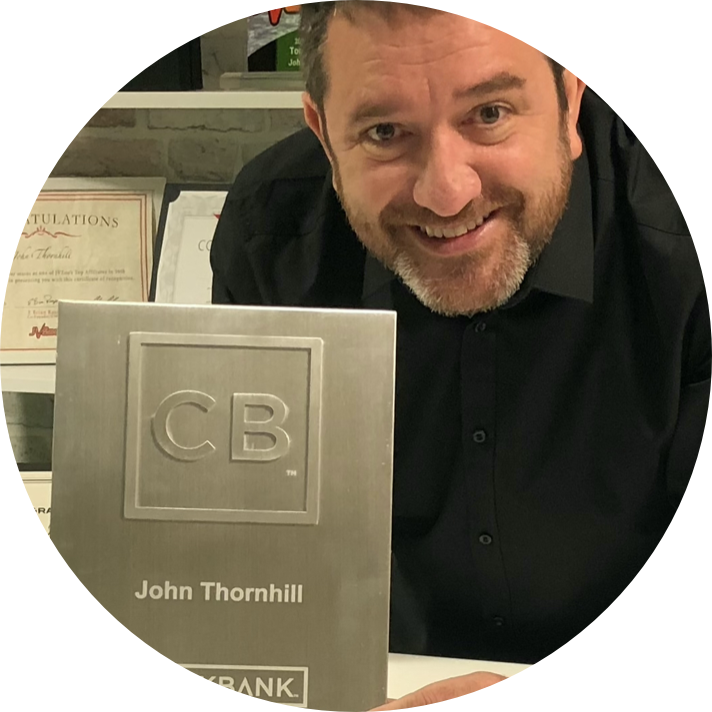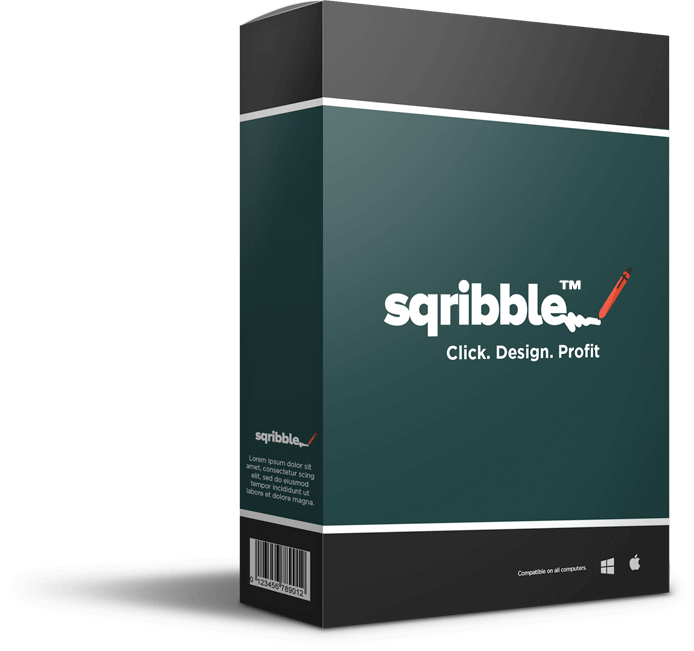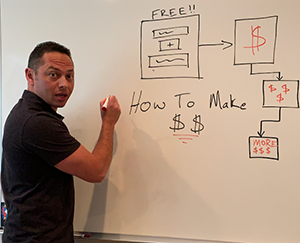Why Your Focus Groups Are Failing and What to Do Instead written by John Jantsch read more at Duct Tape Marketing
The Duct Tape Marketing Podcast with Jacqueline Lieberman In this episode of the Duct Tape Marketing Podcast, I interviewed Jacqueline Lieberman, founder of Brand Crudo and creator of the Anti-Focus Group method. Jacqueline is a brand strategist who works with global giants like Google, Unilever, and Lexus to uncover raw truths and develop innovative brand […]
Why Your Focus Groups Are Failing and What to Do Instead written by John Jantsch read more at Duct Tape Marketing
The Duct Tape Marketing Podcast with Jacqueline Lieberman
In this episode of the Duct Tape Marketing Podcast, I interviewed Jacqueline Lieberman, founder of Brand Crudo and creator of the Anti-Focus Group method. Jacqueline is a brand strategist who works with global giants like Google, Unilever, and Lexus to uncover raw truths and develop innovative brand strategies.
Jacqueline shared how traditional focus groups often fail to provide actionable customer insights and why a new approach is essential for B2B marketing success. She introduced the concept of the Anti-Focus Group, a unique method that replaces sterile conference rooms with VIP dinners to unlock authentic customer feedback, emotional triggers, and deeper connections. This revolutionary approach delivers valuable insights that drive impactful brand messaging, marketing solutions, and business strategies.
Jacqueline Lieberman’s Anti-Focus Group revolutionizes the way brands approach customer insights, brand strategy, and marketing innovation. By moving beyond traditional focus groups and leveraging intimate, VIP settings, businesses can unlock deeper emotional triggers, craft more impactful messaging, and elevate their B2B marketing efforts. If you’re ready to transform your approach to customer research and brand development, the Anti-Focus Group method offers a fresh, effective solution.
Key Takeaways:
- Why Traditional Focus Groups Fail
Traditional focus groups often take place in uninspiring environments, like conference rooms or Zoom panels, where participants feel detached or distracted. These settings fail to uncover the emotional triggers and raw truths needed for meaningful brand strategy. - The Power of Anti-Focus Groups
Jacqueline’s Anti-Focus Group method uses curated VIP dinners to create a comfortable, engaging atmosphere. By fostering authentic conversations, this approach uncovers actionable customer insights and builds deeper connections. - Emotional Triggers and Customer Feedback
Emotional triggers and customer mindsets are critical to effective marketing. The Anti-Focus Group method helps brands identify these elements, enabling them to craft brand messaging that resonates deeply with their target audience. - B2B Marketing Innovation
In B2B settings, understanding executive feedback is key. The Anti-Focus Group method helps businesses gather these insights while also enhancing brand perception through high-quality, exclusive experiences. - Rapid and Actionable Insights
Unlike traditional marketing research methods, Anti-Focus Groups provide a quick turnaround. Insights are delivered within 10 days, allowing brands to act swiftly and confidently on new strategies.
Chapters:
- [00:09] Introducing Jacqueline Lieberman
- [01:10] Anti-Focus Group Dinners: A New Approach to B2B Research
- [05:17] Leveraging Dinner Events for Authentic Customer Feedback
- [09:41] Impact of VIP Dinners
- [12:41] Client Feedback of Anti-Focus Group Dinners
- [14:38] Logistics and Strategy for B2B Client
- [16:06] Scaling the Impact of Group Dinners
More About Jacqueline Lieberman:
John Jantsch (00:01.282)
Hello and welcome to another episode of the Duct Tape Marketing Podcast. This is John Jantsch and my guest today is Jacqueline Lieberman. She’s former chief strategy officer at Story Worldwide, a master of narrative-based marketing, blending human insights with brand truths for giants like Unilever, Google, and Lexus. She’s now the founder of brand Crudo, which she created the DNA method to help &A executives and CMOs differentiate their brands by leveraging raw
truths that can’t be copied. Frustrated by the stale research methods, she also launched the Anti-Focus Group, exclusive dinners that deliver actionable insights from hard to reach audiences while doubling as premium brand experiences. So Jacqueline, welcome to the show.
Jacqueline Lieberman (00:49.624)
Thank you, john. feel like that’s the podcast. did such a great job with the intro. We’re done.
John Jantsch (00:52.452)
Well, I just read what you gave me to tell you the truth. So I take no credit credit for other than being able to read, which Mrs. Morrison in first grade made sure of.
Jacqueline Lieberman (00:57.262)
you
Jacqueline Lieberman (01:03.16)
There we go.
John Jantsch (01:04.228)
All right, so let’s define like what’s an anti-focus group dinner look like.
Jacqueline Lieberman (01:09.422)
sure. Yeah, well, let’s see, as the name suggests, it is the opposite of what a traditional focus group is. And because I am a believer that setting really matters. So when you think about traditional focus groups, they basically take two paths. The traditional route is that you think of this, you know, conference room, a stale conference room with a
what feels like this double glass, you know, one sided mirror that’s there that makes you feel like you’re in like an FBI interrogation room, you know, being detained for some reason. And then you have a moderator who nine times out of 10 really just looked at, you know, what they’re supposed to be talking about. And they don’t really have a lot of skin in the game as to like what to do with the information. So there’s that.
And then the, you know, with the advent of zoom and online panels. So now a lot of really where it’s gone is that you’re looking at a screen with a bunch of boxes that people are doing all day long anyway. And of course people are multitasking while they’re supposedly answering your questions and paying attention. So that’s made the whole feedback loop even worse in my opinion, you know? So yeah.
John Jantsch (02:31.564)
Yeah, yeah, yeah. So, no, I was just going to say, so, you’ve talked about all the limitations of those, but I mean, are, the real limitation that we’re not getting very much that’s actionable out of these? mean, is that why it’s broken?
Jacqueline Lieberman (02:33.998)
And so what I go ahead and you go.
Jacqueline Lieberman (02:51.254)
Yeah, I mean, so being 30 years on the receiving end of those reports, and that number is a real number three, zero. And, and I because I’m the one that’s supposed to do something with it as a brand strategist. This is supposed to be a gold mine of information by which I’m supposed to use as a foundation for brand strategy, audience messaging. And, you know, because of that,
John Jantsch (02:59.95)
Yeah.
Jacqueline Lieberman (03:21.068)
What I end up getting is I dig through a hundred pages of a poorly designed PowerPoint and the crux of it is really about it tells you exactly what was said in the room, which is helpful, but it doesn’t tell you why it was said. It doesn’t tell you really what the motivations are behind what some of the feedback was. And really what the anti-focus group dinners are about is
They’re designed to uncover key mindset and emotional triggers, right? So those are really the two foundational elements of marketing mindset and emotion. So that’s what this dinner setting is meant to unlock because immediately the professional armor comes off. As soon as they walk in the room, they’re like, this is like the best, this is the best part of my day right now. They’re treated like VIPs from the second they walk in.
And they’re sitting down to an amazing meal in an amazing setting. And I’m gently moderating the conversation. I’m not peppering them with a million questions, but it’s new course, new question, or new course, new sets of questions. And we talk about things like, how do you build trust with people? Who do you love to collaborate with and why?
Is there anything in your career that you haven’t done yet that you really want to do? Just so we can understand the more as people and not as targets is really what the feedback is.
John Jantsch (04:59.62)
So as I listen to those, it’s almost more like networking questions than research questions, right? It’s something you might typically want to uncover in a healthy networking conversation. But let’s back up a little bit. So I’m assuming, or maybe I’m wrong, but are these mostly, if not exclusively, B2B settings? OK. OK.
Jacqueline Lieberman (05:10.712)
Sure.
Jacqueline Lieberman (05:17.794)
Yeah, they seem to work for b2b, you know, so, you know, it’s not about, you know, let’s look at the latest box of Cheerios and determine what the creative is. It’s, it’s really more about business to business products and services.
John Jantsch (05:26.733)
Yeah, okay.
John Jantsch (05:34.116)
So I’m a customer or maybe a targeted customer. get invited to this. Am I told I’m going to dinner and it’s going to be a research? do you sometimes get a little, because it’s unique, do you sometimes get a little, wait a minute, what?
Jacqueline Lieberman (05:42.402)
Yes.
Jacqueline Lieberman (05:48.45)
Well, we get mostly the only wait a minute what is when we do disclose that they will be wearing microphones, because this is research, you know, so this is, you know, when I call it, it’s the most productive dinner you’ll ever sponsor all year, you know, it’s like you have b2b dinners all the time and networking, right and golf outings and all of this stuff. But but when people walk in,
John Jantsch (05:56.676)
Yeah.
John Jantsch (06:04.536)
Yeah, yeah.
Right.
Jacqueline Lieberman (06:14.574)
They we let them know in the invitation before they even respond that they will be mic’d up that this is for research and just like research in a focus group they do get compensated for their time. So we want them to feel that their time spent was immensely valuable in every way.
John Jantsch (06:36.42)
So I’m sure people forget about the microphones pretty quickly in, I’m imagining like, okay, I can’t burp, right? So, all right, so then you get, I assume the microphone is because you’re recording, right? So you get all of this recordings. How do you make sense out of them that in a way that you can actually address the objectives of the sponsor?
Jacqueline Lieberman (06:43.502)
We haven’t run into that.
Jacqueline Lieberman (07:02.464)
Yes. Well, before I answer that directly, I will address the so the mindset questions that I was saying before, we do have dinners where it is a mix, it really depends on the goal of the dinner. some goals of the dinner are to really understand their ideal customer way better in terms of their mindset and emotional triggers. So that could be the beginning of the dinner, the second half of the dinner could be very much of a brass tacks look,
John Jantsch (07:10.627)
Yeah, yeah.
John Jantsch (07:17.188)
Hmm.
Jacqueline Lieberman (07:30.246)
we would like you to respond to this messaging or this concept board. And I hand it I hand it out over dinner and say, you know, once we’re done, or we’re looking at dessert, and we say, Okay, what do you think about this particular concept or this tagline? So we can get to brass tacks and cover that for sure. But we recommend that it’s definitely going to be a balance of both mindset as well as the brass tacks to make it really worth the sponsoring companies while
John Jantsch (07:33.86)
Mm-hmm.
John Jantsch (08:00.258)
You know, I’ve always contended for years that, you know, one of the best things a company can do is bring their customers together so that they can, hey, you know, I’ve had this problem. They solved that problem for me too. So there’s networking, there’s referrals that go on. It’s people feel like champions now because you’ve treated them to dinner. Is there a little bit of a combination of, hey, we’re like treating you special and getting research from you?
Jacqueline Lieberman (08:07.266)
Yeah.
Jacqueline Lieberman (08:27.086)
for sure. Yeah, for sure. mean, and making them feel valued is part of where the authentic feedback comes in, you know, because when, you know, like I said, when that armor kind of comes down immediately, when you make this comfortable setting and you’re breaking bread with people and introducing yourself and all of a sudden, you’ll get a very different piece of feedback if you ask the same question in a zoom panel or in a conference room.
know, you just do and and that’s the the beauty of it. And and with your question before about you know, how do I weed through three hours of transcript but you know, I’ve been interviewing stakeholders my entire career, it’s part of my process for brand strategy, right? So so before I even, you know, put pen to paper on a br
Recommended Story For You :

How To Make $3493 Commissions Without Doing Any Selling

Successful dropshippers have reliable suppliers.

People Think I Use A Professional Voiceover Artist. NO! I Just Use Speechelo!

Make Money Testing Apps On Your Phone Or Tablet

Make More Money or Lose Everything

Sqribble Is The ONLY eBook Creator You’ll Ever Need.

Work & Earn as an Online Assistant

Create Ongoing Income Streams Of $500 To $1000 Or More Per Day



